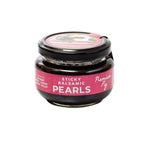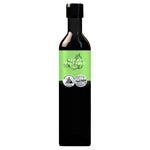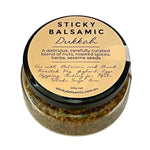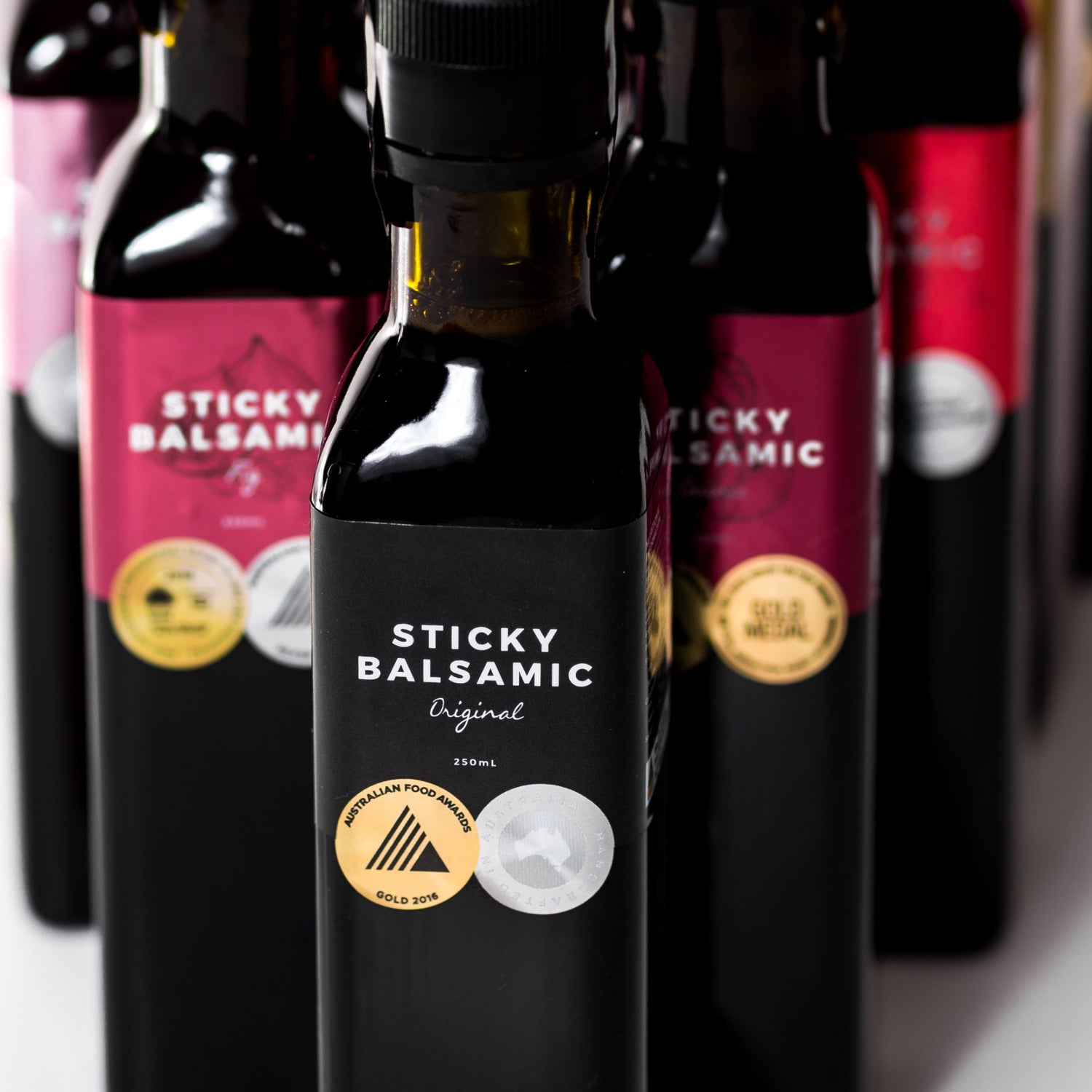Is Balsamic Vinegar Good for You? The Complete Health Guide
Discover the surprising health benefits of this beloved condiment and why it deserves a place in your wellness routine.
When you drizzle that rich, glossy balsamic vinegar over your caprese salad or roasted vegetables, you're not just adding incredible flavor – you're actually doing your body a favor. The question "is balsamic vinegar good for you?" has a resoundingly positive answer, backed by centuries of traditional use and modern scientific research.
The Nutritional Profile of Balsamic Vinegar
Balsamic vinegar is remarkably low in calories while being packed with beneficial compounds. A typical tablespoon (15ml) contains only 10-20 calories, making it an excellent choice for those watching their weight (Budak et al., 2014). Unlike many condiments loaded with sugar and artificial additives, quality balsamic vinegar derives its sweetness naturally from concentrated grape must.
The magic lies in what balsamic vinegar contains: antioxidants, acetic acid, and trace minerals that work together to support your health. Traditional balsamic vinegar, aged in wooden barrels, develops even more complex beneficial compounds over time, making premium varieties particularly valuable from a health perspective (Verzelloni et al., 2007).
Antioxidant Powerhouse
One of the most significant health benefits of balsamic vinegar comes from its impressive antioxidant content. These powerful compounds help protect your cells from damage caused by free radicals, which are linked to aging and various chronic diseases (Verzelloni et al., 2007).
The grape must used in authentic balsamic vinegar contains polyphenols, the same beneficial compounds found in red wine and grapes. These antioxidants have been studied for their potential to reduce inflammation, support heart health, and even help protect against certain types of cancer (Budak et al., 2014). The longer the aging process, the more concentrated these beneficial compounds become.
Heart Health Benefits
Research suggests that regular consumption of balsamic vinegar may support cardiovascular health in several ways. The acetic acid in balsamic vinegar has been shown to help lower cholesterol levels, particularly LDL (bad) cholesterol (Fushimi et al., 2006). This can contribute to better overall heart health and reduced risk of cardiovascular disease.
Additionally, some studies indicate that balsamic vinegar may help improve blood circulation and support healthy blood pressure levels (Kondo et al., 2001). The potassium content, while modest, also contributes to heart health by helping regulate blood pressure.
Blood Sugar Management
For those concerned about blood sugar levels, balsamic vinegar offers promising benefits. The acetic acid in vinegar has been shown to help slow the absorption of carbohydrates, leading to more stable blood sugar levels after meals (Johnston et al., 2004; Ostman et al., 2005). This makes it particularly valuable for people with diabetes or those looking to manage their blood sugar naturally.
Using balsamic vinegar as a salad dressing or drizzling it over vegetables can help moderate the glycemic impact of your meal. This simple addition to your diet could contribute to better long-term blood sugar control and reduced risk of type 2 diabetes.
Digestive Health Support
Balsamic vinegar can be a friend to your digestive system. The acetic acid helps stimulate the production of digestive enzymes, which can improve your body's ability to break down and absorb nutrients from food (Fushimi et al., 2006). This can be particularly beneficial for people who experience digestive discomfort or have difficulty absorbing certain nutrients.
The probiotic potential of traditionally fermented balsamic vinegar may also support gut health, though more research is needed in this area. What's clear is that incorporating balsamic vinegar into your meals can support overall digestive wellness.
Weight Management Benefits
If you're looking to maintain a healthy weight, balsamic vinegar can be a valuable ally. Its low calorie content makes it an excellent substitute for higher-calorie dressings and sauces. More importantly, the acetic acid in balsamic vinegar may help increase feelings of fullness, potentially reducing overall calorie intake (Ostman et al., 2005).
Some studies suggest that vinegar consumption can help boost metabolism slightly, though the effect is modest (Kondo et al., 2009). The real benefit comes from using balsamic vinegar to make healthy foods more delicious, encouraging you to eat more vegetables and lean proteins.
Skin and Anti-Aging Properties
The antioxidants in balsamic vinegar don't just work internally – they may also benefit your skin. These compounds help protect against oxidative stress, which contributes to premature aging (Verzelloni et al., 2007). While you shouldn't apply balsamic vinegar directly to your skin, consuming it regularly may contribute to a healthy, radiant complexion from the inside out.
Bone Health Considerations
Traditional balsamic vinegar contains small amounts of minerals like calcium and phosphorus, which are important for bone health. While the amounts aren't significant enough to meet your daily requirements, every bit helps, especially when combined with a balanced diet rich in bone-supporting nutrients.
Choosing the Right Balsamic Vinegar for Health
Not all balsamic vinegar is created equal when it comes to health benefits. Traditional balsamic vinegar, aged in wooden barrels, offers the most concentrated benefits. Look for products that list grape must as the primary ingredient and avoid those with artificial flavors.
Premium balsamic vinegar, while more expensive, often provides better health benefits due to their traditional production methods and higher concentration of beneficial compounds. The investment in quality pays dividends in both flavor and wellness benefits.
Innovative Ways to Maximize Health Benefits
Modern innovations in balsamic vinegar, such as Sticky Balsamic Pearls created through molecular gastronomy, offer exciting new ways to incorporate these health benefits into your diet. These concentrated flavor bursts deliver the same beneficial compounds in a novel format that can make healthy eating more enjoyable and interesting.
Whether you're using traditional aged balsamic vinegar, flavored varieties like fig or pomegranate, or innovative formats like pearls, you're getting health benefits along with incredible taste.
The Bottom Line
So, is balsamic vinegar good for you? Absolutely. This flavorful condiment offers a range of health benefits, from antioxidant protection to blood sugar management, all while adding minimal calories to your diet. The key is choosing quality products and using them regularly as part of a balanced, healthy diet.
Incorporating balsamic vinegar into your daily routine is simple and delicious. Drizzle it over salads, use it to marinate proteins, or add it to roasted vegetables. Your taste buds and your body will thank you for making this healthy choice a regular part of your culinary repertoire.
Ready to experience the health benefits of premium balsamic vinegar? Explore Sticky Balsamic's range of award-winning, traditionally crafted balsamic vinegars and innovative pearls that make healthy eating a delicious adventure.
* Disclaimer: This is not medical advice. For any concerns or questions, please contact your medical professional*
References
Budak, N. H., Aykin, E., Seydim, A. C., Greene, A. K., & Guzel‐Seydim, Z. B. (2014). Functional properties of vinegar. Journal of Food Science, 79(5), R757-R764.
Fushimi, T., Suruga, K., Oshima, Y., Fukiharu, M., Tsukamoto, Y., & Goda, T. (2006). Dietary acetic acid reduces serum cholesterol and triacylglycerols in rats fed a cholesterol-rich diet. British Journal of Nutrition, 95(5), 916-924.
Johnston, C. S., Kim, C. M., & Buller, A. J. (2004). Vinegar improves insulin sensitivity to a high-carbohydrate meal in subjects with insulin resistance or type 2 diabetes. Diabetes Care, 27(1), 281-282.
Kondo, S., Tayama, K., Tsukamoto, Y., Ikeda, K., & Yamori, Y. (2001). Antihypertensive effects of acetic acid and vinegar on spontaneously hypertensive rats. Bioscience, Biotechnology, and Biochemistry, 65(12), 2690-2694.
Kondo, T., Kishi, M., Fushimi, T., Ugajin, S., & Kaga, T. (2009). Vinegar intake reduces body weight, body fat mass, and serum triglyceride levels in obese Japanese subjects. Bioscience, Biotechnology, and Biochemistry, 73(8), 1837-1843.
Ostman, E., Granfeldt, Y., Persson, L., & Björck, I. (2005). Vinegar supplementation lowers glucose and insulin responses and increases satiety after a bread meal in healthy subjects. European Journal of Clinical Nutrition, 59(9), 983-988.
Verzelloni, E., Tagliazucchi, D., & Conte, A. (2007). Relationship between the antioxidant properties and the phenolic and flavonoid content in traditional balsamic vinegar. Food Chemistry, 105(2), 564-571.









